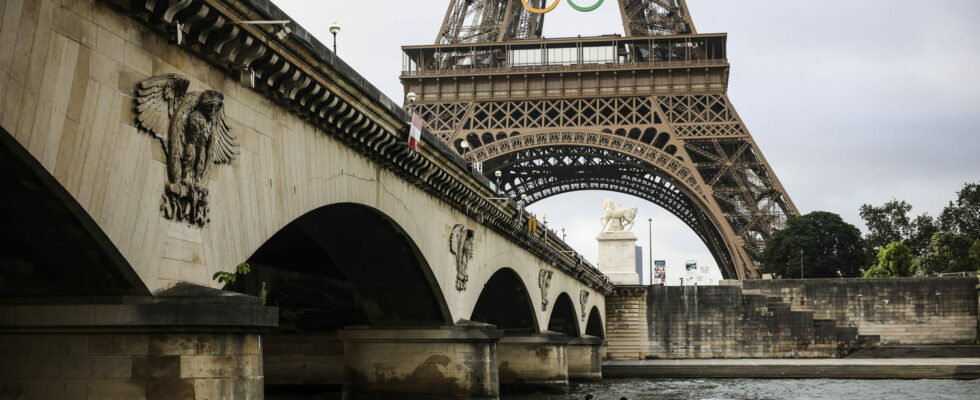Faced with the possible difficulty of holding the triathlon events in the Seine, a radical solution is being considered.
A few weeks before the opening of the Olympic Games, the holding of the open water swimming events and the triathlon swim is still up in the air. Announced as the flagship event of these Paris 2024 Games, the promise of holding these events in the Seine is floundering. The cause is the quality of the water in the Parisian river, subject to the vagaries of the weather and the efficiency of the capital’s wastewater evacuation network.
Paris Mayor Anne Hidalgo had announced that she would swim in the Seine on June 23, but the date was ultimately postponed to “after July 14.” However, many works have been put in place to make the river swimmable, including a 50,000 m3 retention basin located at the Gare d’Austerlitz. In total, 1.4 billion euros have been injected into the sanitation plan, while the decree prohibiting swimming in the river dates back to 1923.
While the City Hall and the Olympic and Paralympic Games organizing committee have assured that the open water swimming and triathlon swimming events will be able to take place on July 30 and 31 and August 8 and 9, the possibility of heavy rain cannot be ruled out. Also, the possibility of planning contingency days in order to be able to postpone the events in the same way as surfing is being studied. But so far, the organizers have refused to mention any plan B that could involve holding the events in another location. Also, if it is impossible to postpone the triathlon, it would become… A duathlon, that is to say an event combining only cycling and running. Swimming would be purely and simply abandoned. This is indeed one of the possibilities mentioned by the COJOP as a last resort, a possibility that obviously does not delight either the athletes or the organizers.
Less than a month before the opening ceremony of the Games, this question of the cleanliness of the Seine remains at the heart of the debates, and the Brazilian Olympic open water swimming champion Marcela Cunha had urged the organizers to find a plan B during an interview last February.
A statement that had bothered the manager of the French teams Stéphane Lecat, “in Rio, every day there is a Maracana of untreated water in the sea. The sanitation system that was supposed to serve as a legacy was never implemented. Except that I have never heard a Brazilian athlete say that you shouldn’t swim in Copacabana because it was unsanitary. That means that when you are world champion, you are a spokesperson, but when you want…”
